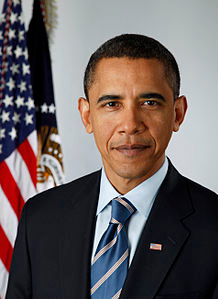- the president; George Washington, first president of the United States; President Ford; the presidency; presidential; the Taft administration; Chandrika Kumaratunga, president of Sri Lanka; President Kumaratunga or Mrs. Kumaratunga
- the vice president; Joseph Biden, vice president of the United States; Vice President Biden; vice-presidential duties; Jorge Quiroga, vice president of Bolivia; Vice President Quiroga
- the secretary of state; Hillary Rodham Clinton, secretary of state; Secretary of State Clinton or Secretary Clinton
- the senator; the senator from West Virginia; Senator Robert C. Byrd; Senators Byrd and Trent; Sen. John Glenn, Democrat from Ohio (or D-OH)
- the representative; the congressman; the congresswoman; Henry Hyde, representative from Illinois or congressman from Illinois; Congressman Hyde or Rep. Henry Hyde (R-IL) or Rep. Henry Hyde (R-Ill.); Maxine Waters, representative from California; Congresswoman Waters; the congresswoman or the representative; Representatives Hyde and Waters
- the Speaker; John Boehner, Speaker of the House of Representatives; Speaker Boehner (Speaker is traditionally capitalized)
- the chief justice; [the late] William H. Rehnquist, chief justice of the United States; Chief Justice Rehnquist
- the associate justice; Antonin Kennedy, associate justice; Justice Kennedy; Justices Kennedy and Thomas
- the chief judge; Henry Tonigan, chief judge; Judge Tonigan
- the ambassador; Philip Lader, ambassador to the Court of St. James's or ambassador to the United Kingdom; Ambassador Lader
- the governor; Ruth Ann Minner, governor of the state of Delaware; Governor Minner
- the mayor; Rahm Emanuel, mayor of Chicago; Mayor Emanuel
- the state senator; Olga Parker, Ohio state senator; the Honorable Olga Parker
- the state representative (same pattern as state senator)
- the governor-general of Canada; the Right Honourable David Johnston
- the minister; Motohisa Furukawa, Japanese economics minister; Mr. Furukawa
- the prime minister; the Right Honourable Pierre Elliott Trudeau, former prime minister of Canada; David Cameron, the British prime minister
- the premier (of a Canadian province); the Right Honourable Roy Romanow
- the member of Parliament (UK and Canada); Jane Doe, member of Parliament or, more commonly, Jane Doe, MP (not used as a title preceding the name); Jane Doe, the member for West Hamage
- the chief whip; Tony Yengeni, chief whip of the African National Congress; Yengini
- the foreign secretary (UK); the foreign minister (other nations); the British foreign secretary; the German foreign minister (not used as a title preceding the name)
- the chancellor; Angela Merkel, chancellor of Germany; Chancellor Merkel
- the chancellor of the exchequer (UK); George Osborne; Chancellor Osborne
- the Lord Privy Seal (UK; always capitalized)
Note that some company style sheets make the president of the United States an exception: "The President went to New Orleans today." That's fine; just be consistent!






 You've been there, at some chic party, when the pompous oaf next to you says something like this: "My wife's such a delightful party guest--well-dressed, polite, and always ready with a bon mot." A what? Well, you don't want to look ignorant, so you smile and try to appear as though you know precisely what the fellow meant. And so does everyone else, even though they're probably wondering too! Read on, and this weekend it will be
You've been there, at some chic party, when the pompous oaf next to you says something like this: "My wife's such a delightful party guest--well-dressed, polite, and always ready with a bon mot." A what? Well, you don't want to look ignorant, so you smile and try to appear as though you know precisely what the fellow meant. And so does everyone else, even though they're probably wondering too! Read on, and this weekend it will be 


